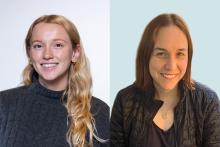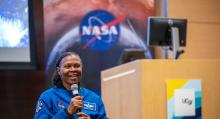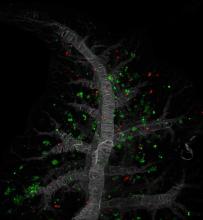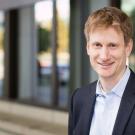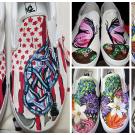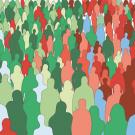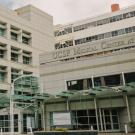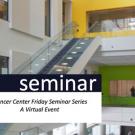News
A Q&A With Thomas Hope, MD on PSMA PET Imaging for Prostate Cancer
Researchers at UC San Francisco and UCLA continue to study prostate-specific membrane antigen PET imaging, or PSMA PET, to provide a more effective imaging test for men who have prostate cancer. Last year, this collaboration on a clinical trial led to U.S. Food and Drug Administration (FDA) approval
Food for Thought: Optimizing Nutrition for Cancer Patients
For 14 years oncology dietitian Greta Macaire, RD, MA, has provided nutrition support to cancer patients before, during, and after treatment. She creates tailored nutrition plans that support individual goals and that optimize wellness and quality of life by taking into account a person's overall
To Walk in Their Shoes: Finding Meaning in Art and Giving
For Reno teenager Olivia Tillis, painting shoes is more than just a hobby – it is a way to honor her mother’s memory, while also giving back to the brain tumor community. Olivia’s mother, Rosie Tillis, was diagnosed with glioblastoma in 2017 and passed away almost two years later. Since then, Olivia
UCSF to Coordinate Health Disparities Research in Multiple Chronic Diseases with $22.5M Grant
Tracking and integrating findings across disciplines is a persistent challenge in health disparities research. UC San Francisco faculty will soon take this challenge on with a new center to coordinate research from 11 newly funded centers across the U.S. on the root causes of, and ways to eliminate
Treating Anal Cancer Precursor Lesions Reduces Cancer Risk for People With HIV
Treating precursor anal cancer lesions can significantly reduce the risk of progression to full blown anal cancer among people living with HIV, according to results of a large, phase 3 study led by researchers at UC San Francisco. In a randomized clinical trial with 4,446 participants, known as the
Newly Approved Prostate Cancer Scan Can Detect Cells that Have Spread to Lymph Nodes
A revolutionary new diagnostic method for prostate cancer can detect prostate cancer cells that have spread to lymph nodes both inside and outside the pelvis, according to the UC San Francisco and UCLA team whose earlier work led to the test’s FDA approval. The test, which is now available at UCSF
